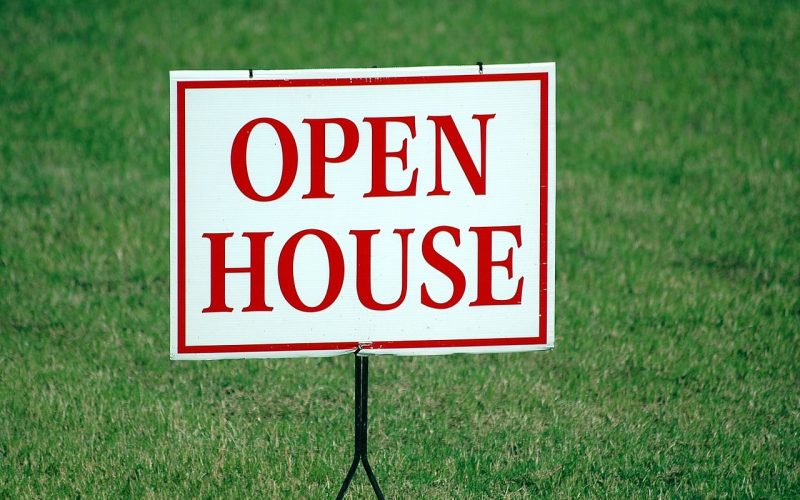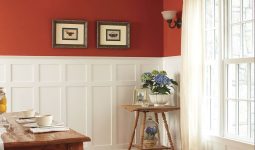An open house is a real estate event where a homeowner and their agent invite the public to view a property for sale within a specific time frame.
It is an opportunity for potential buyers to tour the property and provide feedback. Open houses offer benefits for both sellers and buyers.
For sellers, open houses can attract a large number of potential buyers, allowing them to showcase their property and increase the chances of receiving competitive offers.
It also provides an avenue for gathering valuable feedback.
Open houses provide buyers with a sneak peek into a home without commitment.
It allows them to familiarize themselves with the home buying process and determine what type of house would work best for their situation.
However, open houses can be labor-intensive for sellers and may raise safety concerns. For buyers, they can be distracting and crowded.
Open houses can be held by appointment or exclusively for real estate professionals.
To find open houses, you can check real estate websites, neighborhood event pages, or use real estate apps.
In addition to traditional open houses, open house parties are also popular.
These parties allow hosts to invite a large number of guests without the need for extensive planning or seating arrangements.
They are informal, public events where guests can come and go as they please.
Open house parties offer a variety of benefits, including the ability to accommodate a larger guest list and the opportunity to mingle and introduce friends to each other.
When hosting an open house party, planning and preparing accordingly is important.
This includes cleaning the house, providing enough space for guests, ensuring there is enough food and a variety of beverages, and providing clear signage for off-limit areas.
Overall, open houses and open house parties are popular and effective ways to showcase a property for sale or host a social gathering.
Benefits of an Open House
Open houses provide several benefits for both sellers and buyers in the real estate market.
For sellers, hosting an open house can attract a larger pool of potential buyers to view their property.
By opening the doors to the general public, sellers quickly increase their chances of finding the right buyer.
Open houses also allow sellers to collect valuable feedback from visitors, giving them insights into the market’s perception of their property and potential areas for improvement.
Buyers, on the other hand, benefit from open houses as they offer a unique opportunity to explore a home without a formal commitment.
Attending an open house allows buyers to get a sneak peek into the property and assess its condition, layout, and overall appeal.
It also provides a chance to familiarize themselves with the home buying process and gain insights from the seller’s agent.
Open houses are particularly beneficial for buyers who are still in the exploratory phase and trying to figure out what type of house would best suit their needs.
If you’re a seller, hosting an open house can help you attract more potential buyers, gather valuable feedback, and increase the likelihood of receiving competitive offers.
And if you’re a buyer, attending open houses gives you a convenient way to explore different properties and gain insights into the real estate market.
How to Host an Open House
Hosting an open house requires careful planning and preparation to ensure a successful event.
Whether you’re a homeowner looking to sell your property or a real estate agent representing a client, these tips will help you create a positive and memorable experience for potential buyers.
1. Prepare the Property
Before the open house, ensure the property is clean, decluttered, and staged to showcase its best features.
Consider hiring a professional cleaning service to ensure every corner is spotless.
Remove personal items like family photos to allow visitors to envision themselves living in the space.
Enhance curb appeal by tidying up the exterior, mowing the lawn, and adding some fresh flowers or potted plants near the entrance.
2. Advertise the Open House
Spread the word about your open house through various channels.
To reach a wider audience, utilize online platforms, such as real estate websites and social media.
Create attractive signage with the address, date, and time of the event to place in the neighborhood and on the property.
Consider sending out invitations to neighbors, as they may know someone interested in living in the area.
3. Engage with Visitors
During the open house, greet visitors warmly and provide them with information about the property and its unique features.
Be prepared to answer questions about the neighborhood, nearby amenities, and the home buying process in general.
Encourage visitors to provide feedback and consider offering refreshments to make them feel welcome and comfortable.
Remember to follow safety measures, such as limiting the number of visitors inside the property at a given time, providing hand sanitizer, and maintaining social distancing guidelines if applicable.
By following these tips, you can create an inviting and informative open house that will leave a lasting impression on potential buyers and increase the chances of a successful sale.
Open House Tips and Checklist
Follow these helpful tips and use our checklist to ensure your open house runs smoothly and attracts potential buyers.
Prepare the Property
Before the open house, make sure your property is clean, tidy, and well-maintained.
Remove any clutter, personal items, and excessive furniture to create a spacious and inviting atmosphere.
Consider staging the property to showcase its best features and create a sense of homeliness for potential buyers.
Remember to pay attention to the exterior as well. Enhance curb appeal by mowing the lawn, trimming bushes, and adding fresh flowers or plants to the entrance.
A well-presented exterior will make a positive first impression.
Create an Inviting Atmosphere
During the open house, focus on creating a warm and welcoming environment.
Open curtains and blinds to let in natural light, and ensure the rooms are well-lit.
Play soft background music to set a pleasant ambiance and make visitors feel at ease.
Stage key areas such as the living room, kitchen, and master bedroom to showcase their potential.
Add fresh flowers, scented candles, or tasteful decorations highlighting the home’s best features.
Creating a visually appealing and inviting atmosphere can help potential buyers envision themselves living in the space.
Offer Refreshments and Information
Provide refreshments for visitors, such as bottled water, coffee, or light snacks.
This small gesture can make visitors feel valued and encourage them to spend more time at the open house.
Prepare informational materials, such as brochures or flyers, that highlight the property’s key features, recent renovations, and nearby amenities.
Include contact information for the listing agent or your real estate agency so interested buyers can easily follow up with any questions or inquiries.
By following these tips and using our checklist, you can ensure your open house is successful.
Remember to be friendly and approachable, ready to answer any questions, and provide a positive experience for potential buyers. Good luck with your open house!
Open House vs Showing: What’s the Difference?
Understanding the distinction between an open house and a private showing can assist sellers and buyers in choosing the best approach for showcasing or exploring a property.
An open house is when a homeowner and their real estate agent invite the general public to view a property for sale within a specified time frame.
It’s an opportunity for potential buyers to tour the property, ask questions, and get a feel for the space.
On the other hand, a private showing is a more personalized experience where a real estate agent schedules an individual appointment for a specific buyer to view the property.
Both open houses and private showings have their advantages.
Open houses allow sellers to attract a large number of potential buyers at once, creating a sense of competition and urgency.
It also provides sellers with valuable feedback about their property.
For buyers, open houses offer a chance to explore a home without any commitment and gain insights into the home buying process.
They can also help buyers narrow down their preferences and determine what type of house suits their needs.
Private showings, on the other hand, offer a more focused and customized experience.
Buyers can have their questions and concerns addressed directly by the real estate agent and better understand the property’s features and condition.
Private showings also allow buyers to explore the property at their own pace and in their preferred time frame.
Which Option Is Right for You?
Deciding between an open house and a private showing depends on your specific circumstances and preferences.
If you are a seller looking to attract a large pool of potential buyers and gather feedback, an open house can be a great option.
However, keep in mind that open houses can be labor-intensive and might create safety concerns.
On the other hand, private showings might be more suitable if you want to provide a personalized experience to serious buyers.
As a buyer, attending open houses can give you a first-hand look at different properties and help you get a sense of the market.
Private showings can be beneficial if you have specific questions or need more time to explore a property in detail.
In the end, open houses and private showings serve different purposes and offer unique experiences.
It’s important to consider your goals, preferences, and the specific property you are interested in when deciding which option to choose.
By understanding the differences, you can make an informed decision that aligns with your needs and ensures a successful property showcasing or exploration experience.
Open House Schedule and Etiquette
Establishing a clear open house schedule and adhering to appropriate etiquette are crucial for both hosts and visitors.
Whether you are hosting an open house or attending one as a potential buyer, following these guidelines will ensure a smooth and successful experience.
Creating a Schedule
When hosting an open house, it is essential to establish a specific start and end time.
This allows potential buyers to plan their visit accordingly and prevents overcrowding.
Consider the day and time that will attract the most foot traffic, such as weekends or evenings.
A typical open house lasts for a few hours, providing ample time for visitors to explore the property.
Preparing the Property
Before the open house, ensure your property is clean, well-maintained, and free of clutter.
Create an inviting atmosphere by opening curtains, turning on lights, and playing soft background music.
Remove personal items and valuables to ensure the safety of both your belongings and visitors.
Etiquette for Visitors
If you are attending an open house as a potential buyer, remember to be respectful of the property and the host.
Remove your shoes or wear shoe covers, refrain from touching personal belongings, and ask permission before taking photos.
Avoid discussing the price or negotiating directly with the host unless you are genuinely interested in making an offer.
Providing feedback to the host after your visit is also courteous, as it helps them refine their selling strategy.
Hosts and visitors can make the most of this valuable opportunity by establishing a clear open house schedule and adhering to proper etiquette.
For hosts, it ensures that potential buyers have a positive experience and are more likely to make an offer.
For visitors, it allows them to explore properties in a respectful manner and gather the necessary information to make informed decisions.
Finding Open Houses and Hosting Open House Parties
Discover different methods for finding open houses and explore the concept of hosting open house parties for enjoyable social gatherings.
When searching for open houses, there are several avenues you can explore.
Start by checking reputable real estate websites, such as Zillow or Realtor.com, where you can filter your search by location, date, and property type.
Additionally, many local real estate agencies have their own websites that list upcoming open houses in the area.
Don’t forget to keep an eye on neighborhood event pages or community bulletin boards, as homeowners sometimes advertise open houses there as well.
If you prefer a more interactive experience, consider downloading real estate apps that provide maps and notifications for open houses in your desired locations.
While attending open houses can be a great way to explore properties, hosting an open house party can also be an exciting and enjoyable experience.
Open house parties allow you to invite friends, family, and even colleagues to your home for a casual and social gathering.
They provide an opportunity for guests to mingle, enjoy refreshments, and experience your home in a relaxed setting.
To host a successful open house party, start by sending out invitations that include essential details such as the location, RSVP information, start and end times, and the style of the party.
Open House Party Tips
Planning and preparation are crucial when hosting an open house party. Here are some tips to ensure your event is a hit:
- Clean and declutter your home to create a welcoming environment for your guests.
- Make sure there is enough space to accommodate your guests comfortably, arranging seating areas and mingling spots.
- Provide a variety of food options, including small bites and finger foods, to cater to different tastes and dietary restrictions.
- Offer a range of beverages, both alcoholic and non-alcoholic, to ensure everyone has something they enjoy.
- Place clear signage throughout your home to indicate any areas that are off-limits to guests.
With these tips in mind, hosting an open house party can be a delightful way to showcase your home and create lasting memories with your loved ones.
Conclusion
Open houses play a significant role in the real estate market, offering opportunities for sellers and buyers to connect and explore a property in a unique way.
An open house is when a homeowner and their real estate agent invite the general public to view a property for sale within a specified time frame.
The purpose is to attract potential buyers, allow them to tour the property, and gather feedback.
For sellers, open houses can attract a large number of potential buyers, collect feedback, and increase the chances of receiving competitive offers.
It provides an excellent platform to showcase the property and create a sense of urgency among interested buyers.
On the other hand, buyers benefit from open houses by getting a sneak peek at a home without any commitment, learning about the home buying process, and finding the best property that suits their needs.
While open houses can be labor-intensive for sellers and may raise safety concerns, they remain popular to showcase a property.
Open houses can also be held by appointment or exclusively for real estate professionals.
To find open houses, you can check real estate websites, neighborhood event pages, or use real estate apps, making it easy for interested buyers to attend and explore potential homes.
In addition to traditional open houses, hosting an open house party has become popular.
Open house parties allow hosts to invite a large number of guests without extensive planning or seating arrangements.
It is an informal, public event where guests can come and go as they please.
Open house parties offer a variety of benefits, including the ability to accommodate a larger guest list and the opportunity to mingle and introduce friends to each other.
Planning and preparation are crucial for a successful open house party, ensuring the house is clean, enough space for guests, plenty of food and beverages are available, and clear signage for off-limit areas.
In summary, open houses and open house parties are effective ways to showcase a property for sale or host a social gathering.
They provide unique opportunities for sellers and buyers to connect, explore properties, and make informed decisions.
Whether you’re looking to sell your home or enjoy a social gathering, open houses offer something for everyone in the real estate market.








